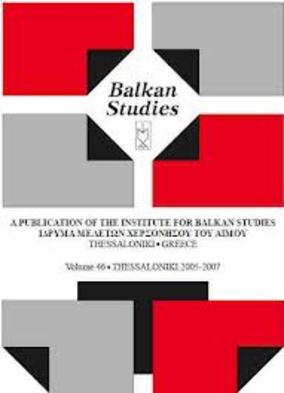Lord Byron and the Greek Orthodoxy
Part of : Balkan studies : biannual publication of the Institute for Balkan Studies ; Vol.27, No.1, 1986, pages 89-104
Issue:
Pages:
89-104
Section Title:
Articles
Author:
Abstract:
Byron’s allusions to the Greek Church and its clergy in his verse are fewand insignificant. However, in his letters, journals, and notes, as well as inaccounts by others, Byron referred to personages and matters of Greek Orthodoxyin a manner that showed his mastery of the relevant lore. Thesecultural echoes include views by his Albanian servant Basil, Byron’s two encounterswith “bishop” Gregorius (1809, 1823), comments on Ayia Sophia,the fit Byron had in the Monastery above Sami in Cephalonia, his theft ofa precious volume by Archbishop Meletius, his desire to publish his Englishtranslation of a treatise by Eusebius—which the poet had done from an Armenianversion of the lost Greek text—his hostility to St Athanasius’s strictconcept of Orthodoxy (which Byron understood and discussed in secularterms), and his answer to Dr Kennedy concerning N. Vamvas’s possible correction of the Greek vernacular translation of the Testaments. Under politicalcontacts I discuss Metropolitan Ignatius’s letters to, and about, Byron, afterhis departure for embattled Greece; Byron’s friendship with Bishop Joseph,acting Metropolitan at Missolonghi in 1824; Joseph’s and MetropolitanPorphyrius’s possible functions during the poet’s funeral; and Joseph’sfittingly “Byronic” death in the aftermath of the heroic Exodus from Missolonghi(1826). Although the cultural echoes were not particularly significant, Byron’s political contacts with these Prelates were important to the cause of Greek Independence.
Subject (LC):
Keywords:
Λόρδος Βύρωνας, Ελληνική Ορθοδοξία




